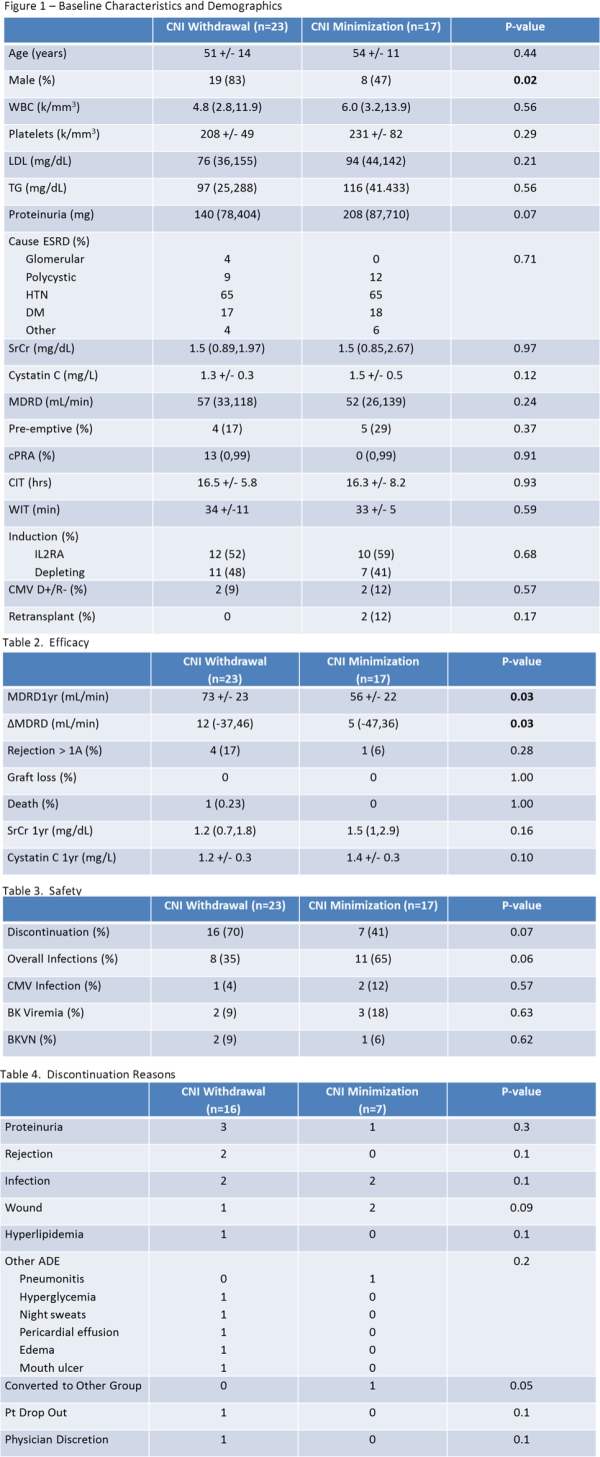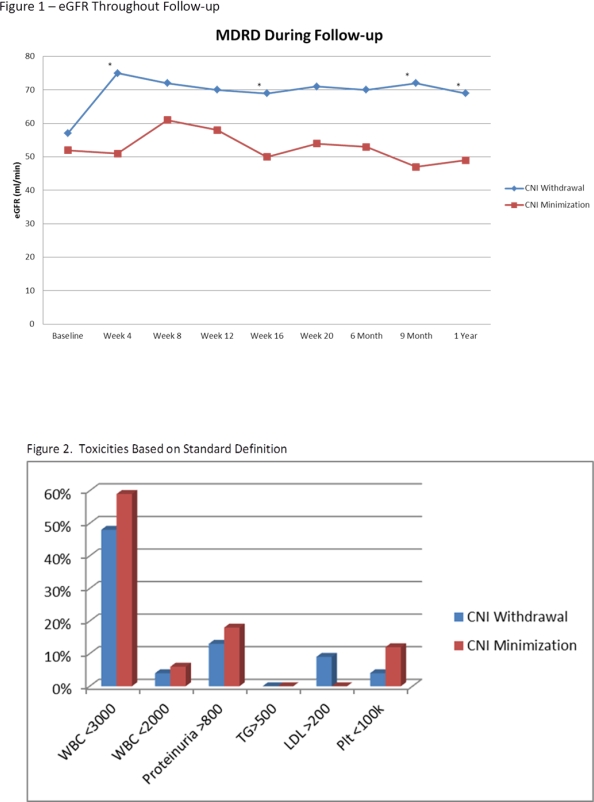mTOR-Based CNI Minimization Vs Withdrawal in African American Kidney Transplant Recipients
1Pharmacy, Medical University of South Carolina, Charleston, SC
2Surgery, Medical University of South Carolina, Charleston, SC.
Meeting: 2015 American Transplant Congress
Abstract number: D140
Keywords: Kidney transplantation, Rapamycin, Renal function, Sirolimus (SLR)
Session Information
Session Name: Poster Session D: Kidney Immunosuppression: Drug Minimization
Session Type: Poster Session
Date: Tuesday, May 5, 2015
Session Time: 5:30pm-6:30pm
 Presentation Time: 5:30pm-6:30pm
Presentation Time: 5:30pm-6:30pm
Location: Exhibit Hall E
The purpose of this study was to compare mTOR-based CNI withdrawal vs. minimization in African American (AA) kidney transplant (KTx) recipients.
METHODS: This was a single-center, prospective, randomized, open-label, ITT study of 40 consecutively enrolled AA KTxs. The primary endpoint was a comparison of the estimated GFR via the MDRD at 12 months post-sirolimus conversion. Secondary endpoints included SrCr, cystatin C, biopsy-proven acute rejection, and the safety and tolerability of each regimen. Patients were randomized between 6-24 weeks post-KTx to sirolimus with either CNI-withdrawal or CNI-minimization.
RESULTS: Baseline demographics were similar with the exception of gender (table 1). Median day of transition in the CNI withdrawal arm and CNI minimization arm was day 96 and 68, respectively. Patients in the CNI withdrawal group had significantly better graft function at 1yr with a significantly greater increase in estimated GFR compared to the minimization group (Table 2, Figure 1); both groups had an equivalent risk of infection, rejection, death and graft loss (Tables 2 and 3). As can be seen in Table 4, both regimens were constrained by disproportionately high discontinuation rates despite the modest and similar toxicities displayed in Figure 2. Upon reviewing the detailed reasons for withdrawal, several patients were withdrawn for ADEs that may not typically lead to discontinuation of therapy or were unclear.
CONCLUSION: AA KTx recipients undergoing an early post-transplant mTOR-transition appear to benefit more from CNI withdrawal than minimization despite a high withdrawal rate.


To cite this abstract in AMA style:
Fleming J, Taber D, Pilch N, Meadows H, Mardis C, McGillicuddy J, Nadig S, Chavin K, Baliga P, Bratton C. mTOR-Based CNI Minimization Vs Withdrawal in African American Kidney Transplant Recipients [abstract]. Am J Transplant. 2015; 15 (suppl 3). https://atcmeetingabstracts.com/abstract/mtor-based-cni-minimization-vs-withdrawal-in-african-american-kidney-transplant-recipients/. Accessed February 17, 2026.« Back to 2015 American Transplant Congress
